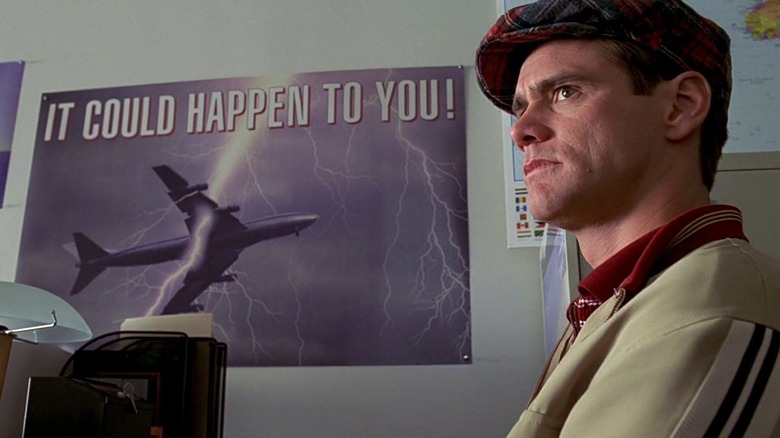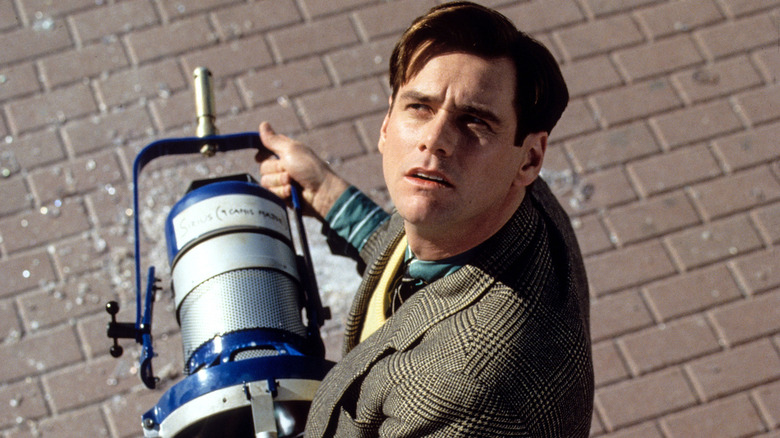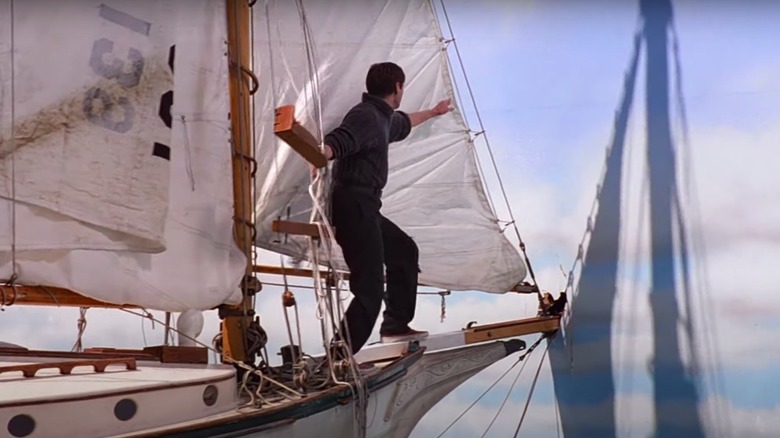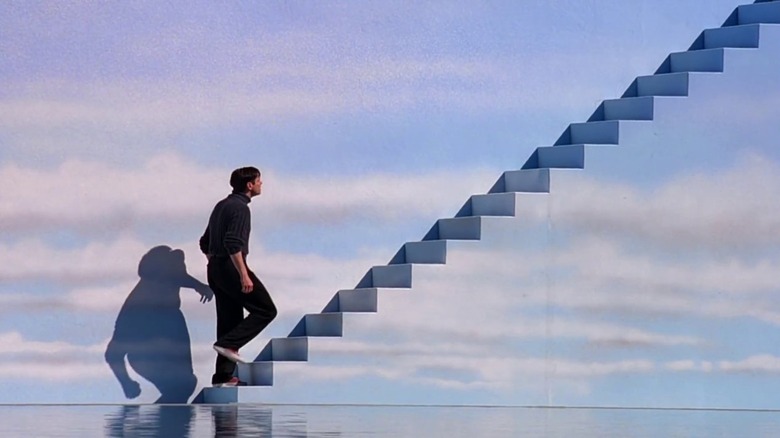Filming The Truman Show's Finale Put Jim Carrey's Actual Life On The Line
Just two short decades ago the television landscape was very different. Traditional sitcoms and serial dramas still dominated both cable and network TV. Then along came reality television. It disrupted programming and viewing habits that had been in place for half a century. And a Jim Carrey movie predicted it all.
"The Truman Show" was way ahead of its time. The film was released in 1998, two years before CBS Network's "Survivor" would launch the reality TV boom that changed TV forever. "The Truman Show" poses the question, who defines our world? Its answer: the media.
The movie critiques modern media in a satirical way but also pokes fun at audiences that cling to its character's every move. It wasn't that far from reality. CBS' "Big Brother," the closest thing to an actual version of "The Truman Show," continues to draw an audience of millions. Last month it had the largest overall network audience with 3.5 million total viewers watching in primetime.
As the narrative of "The Truman Show" built to a climax, there was a very real drama happening on the film set. Filming the final sequence of the movie put Jim Carrey's life in danger and changed him in a profound way.
Carrey was living a Truman-esque life
Long before the Kardashians, "The Truman Show" conceived a world where America is obsessed with one man, Truman Burbank (Carrey). He was adopted by a TV studio and starred in a reality TV show from birth, but there's a catch. Truman doesn't know he's in a TV show. As the walls of the "reality" show slowly crumble, Truman learns the truth about the façade and tries desperately to escape.
In addition to the movie predicting the reality TV craze, its star was living a life all too comparable to Truman Burbank. After 1994, when Carrey experienced one of the most successful years in film history, the actor went from relative obscurity to one of Hollywood's hottest leading men overnight. But it came with a cost. Carrey was trading his privacy for success.
As Variety points out, the paparazzi didn't hold back in their attempts to capture every element of Carrey's private life. Photographers camped out in his backyard and even followed the actor to a private Antigua resort while he was honeymooning. Of the intrusion, Carrey said:
"Those were the kind of things that happened periodically that made me realize, 'O.K., my life will never be the same.' It's almost as if celebrities lose their civil rights when they become famous."
It made sense that Carrey could relate to his character's unsettling final moments in "The Truman Show." In the sequence, Truman frantically tries to escape the camera's omniscient reach, attempting to finally find some privacy. But things got a little too real for Carrey when filming the sequence almost turned deadly. It ended up being a life-changing moment for the actor.
'We can't let him die in front of a live audience'
Water plays a significant role in the narrative of "The Truman Show." To keep their actor in the town of Seahaven, the producers of the show manufactured a fear of water in Truman by "killing" his father in a boating accident. Then they surrounded the town with water. It sets up the climatic moment where Truman must face his greatest fear to escape the grasp of a perpetual worldwide television audience. As the show's director assaults Truman with a fabricated storm, someone in the TV control room exclaims, "We can't let him die in front of a live audience!"
But that was actually happening while filming. Carrey says that he almost died in the tank they filmed in because of a miscommunication. He recalled to Vanity Fair:
"I don't know if you can see it in the film, but they've got divers under the water, and I'm actually giving the signal of like, 'I'm in trouble,' which was a clenched fist. They just saw it as acting. I went under, I had no breath left, and I was drowning. I was under the water at the bottom of the pool, and with the last breath, with the last hint of consciousness, I just spun and made a couple of gigantic strokes toward the back of the storm and came up outside the storm gasping for air and exhausted."
A turning point
The moment was an epiphany for Carrey. Tiring of the spotlight after a half-decade as a Hollywood A-lister, Carrey relented. "Did I just sign off to this whole thing, this whole idea of being the crowd-pleasing guy? Did I just sign out? I think I did, to a certain extent," Carrey reflected after the near-death experience.
The accident was a turning point for an atypical Hollywood actor. Although he's been deemed eccentric, it's often just pushback from an actor that only wants his privacy in an increasingly exposed Hollywood landscape. Just like "The Truman Show" predicted.



